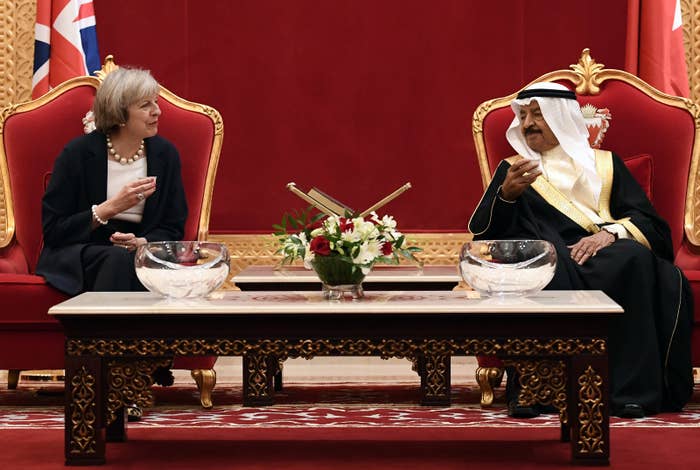
Campaigners are urging Theresa May to raise multiple human rights concerns during her current two-day trip to Bahrain to "turbo-charge" trade deals between the UK and the Gulf.
The prime minister is meeting Gulf leaders to explore the possibility of new free trade agreements between the UK and Gulf once the UK has left the European Union. It could be a lucrative deal, with the government saying it has identified £30 billion of opportunities for businesses across 15 different sectors over the next five years in the Gulf.
May's 6–7 December visit closely follows an official visit by Prince Charles last month to mark the 200th anniversary of bilateral relationships between the UK and Bahrain that saw the prince visit mosques and temples and attend a Remembrance Day service.
Trade deals aside, however, human rights campaigners say the UK government has demonstrated "abject failure" in exerting positive influence on the human rights situation in Bahrain.
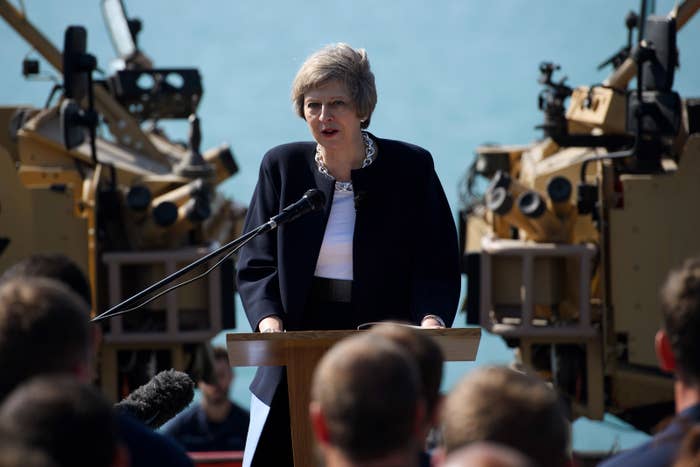
Opposition parties in the House of Commons have also mounted pressure, calling on May to make human rights more central to her visit: Fabian Hamilton MP, shadow Middle East minister, said in a statement that he was not convinced human rights concerns would be prioritised over a trade deal, "given the government’s obsession with having to show that the UK can cope on its own once it leaves the EU," while Tom Brake, the Lib Dem spokesperson for foreign affairs, said turning a blind eye would do damage to the UK’s international standing.
A letter signed by six high-profile rights groups – including Human Rights Watch, Reprieve, and the Bahrain Institute for Rights and Democracy (BIRD) – said there had been a "marked deterioration" of Bahrain's human rights situation since the summer.
"If your government is serious about its commitment to encouraging reform and dialogue, you should use this influence to press the government of Bahrain to put an immediate stop to this repression," the statement read.
Here are some of the issues campaigners are urging May to raise while she's in Bahrain:
The jailing of Bahraini human rights activist Nabeel Rajab
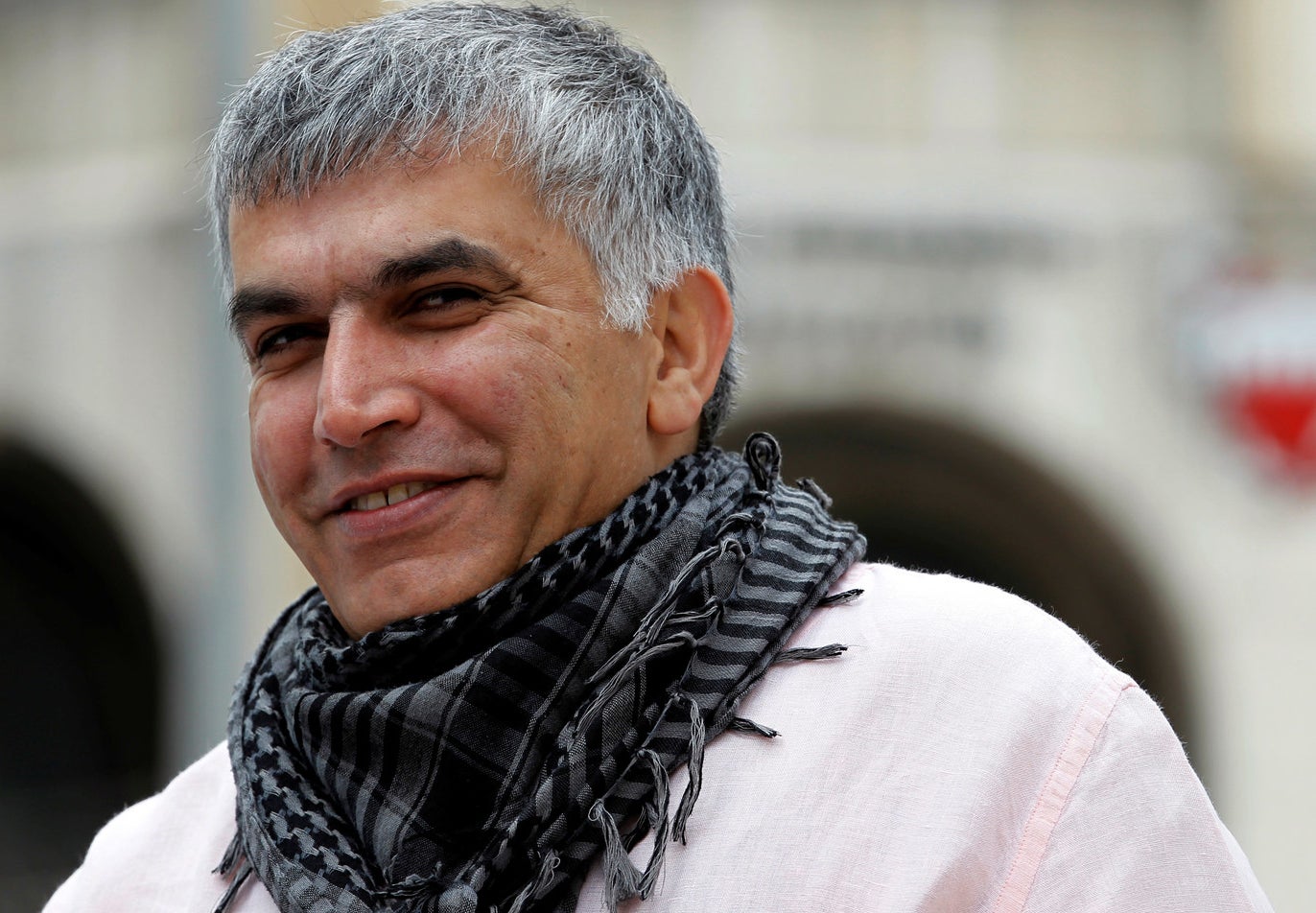
Nabeel Rajab, the president of the Bahrain Center for Human Rights, has been jailed in a Bahraini cell since the summer. He was arrested in June and received the warrant from the Bahrain cybercrimes unit chief. One of the charges included “insulting a neighbouring country" (Saudi Arabia) in a tweet he sent. In a letter published in the New York Times, Rajab wrote that officials had warned him that if he didn’t stop his advocacy work, he would face up to 15 years in prison.
It is not the first time Rajab has been held by authorities – the human rights campaigner was also held from 2012–14 and in 2015.
According to BIRD, over 20 human rights activists were banned from travel in June and August this year.
UK training assistance at Bahrain's death row prisons
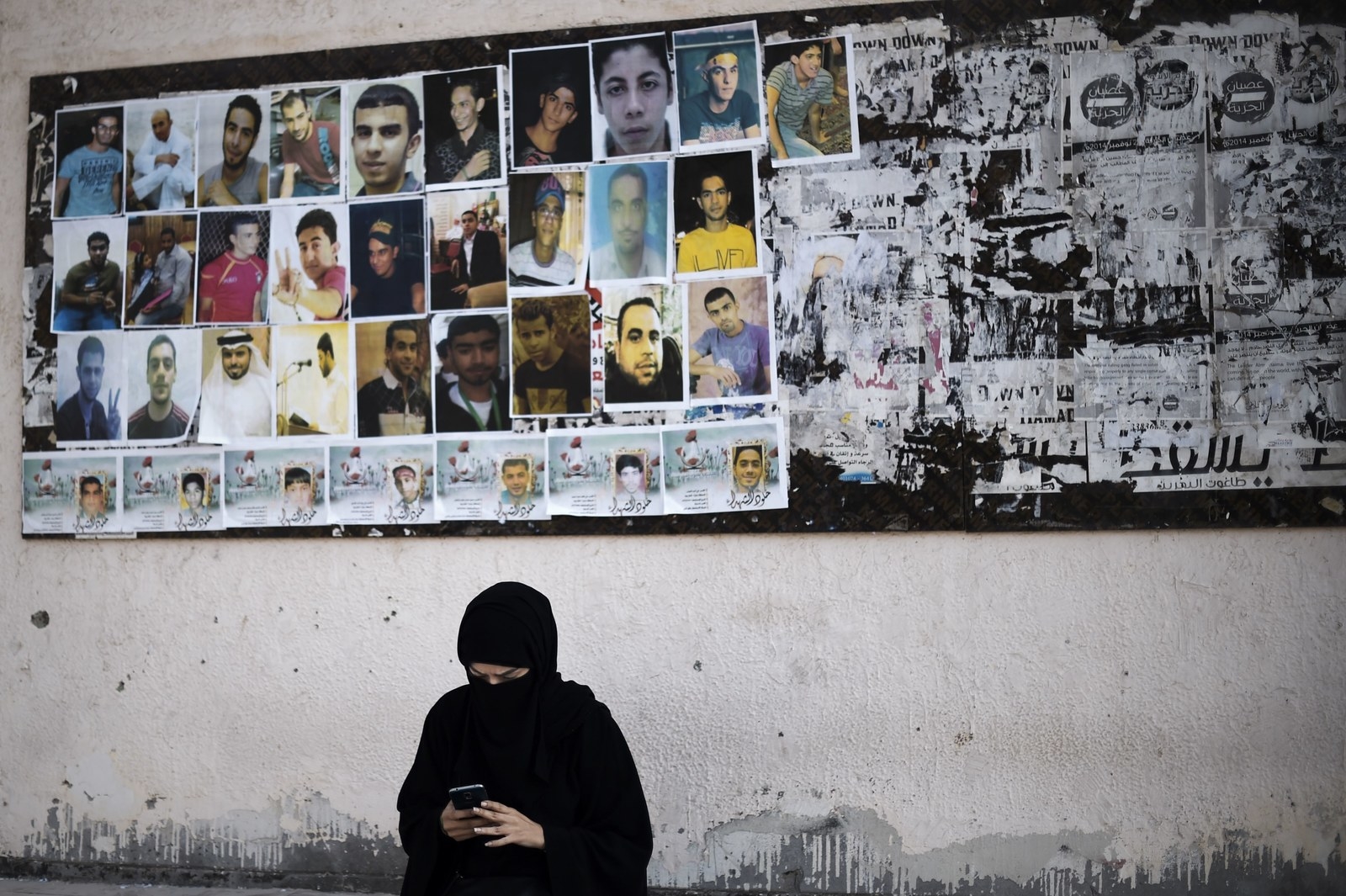
The Foreign Office funded training for hundreds of prison guards at Bahrain’s death row jail, according to an investigation by Reprieve, the anti–death row charity.
Reprieve found that in 2015 more than a dozen experts of Northern Ireland Co-operation Overseas (NI-CO), a state-owned Belfast business, worked with Bahrain’s prison staff at jails where systematic torture took place and trained as many as 400 guards who work at Jau, which holds prisoners awaiting execution.
One of the men sentenced to death after prolonged torture is Mohammed Ramadan, a 32-year-old airport policeman who was arrested for involvement in the killing of a police officer in February 2014 and has now exhausted all appeals. Campaigners say he confessed falsely to the crime after being tortured. Reprieve says he was arrested in retaliation for his attendance at peaceful pro-democracy demonstrations and "brutally tortured by police into signing a false confession despite his innocence".
Today Ramadan's wife has written to Theresa May urging her to call for his release.
She wrote: "Throughout this time, the UK government has championed Bahrain’s supposed human rights reforms, spending millions coaching a torture watchdog, training hundreds of guards at the death-row jail where he is held, and secretly assisting Bahrain’s police, who continue to torture peaceful protesters."
Accusations the Foreign Office has covered up Bahrain torture allegations
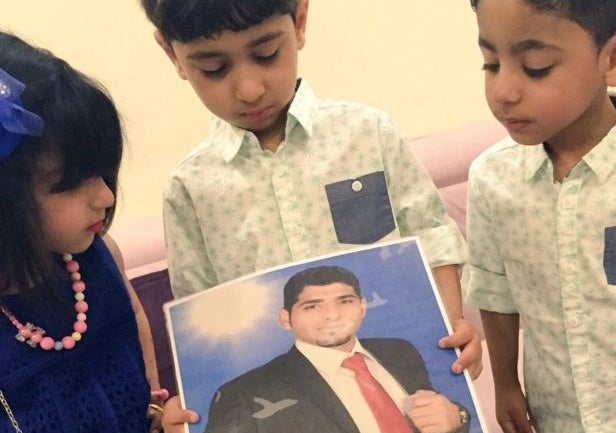
Earlier this year, Tobias Ellwood, the Foreign Office minister, told his department there had been “no allegations of mistreatment or torture” in relation to the Mohammed Ramadan case. Yet BuzzFeed News discovered the Foreign Office had been repeatedly provided with evidence to the contrary by human rights organisations.
Tom Brake, the Lib Dem MP, said at the time: “It is appalling that yet again Tobias Ellwood has been covering up allegations of serious human rights abuses by questionable regimes, and unacceptable that this is the second time in two weeks Ellwood has been forced to retract statements he made to parliament. This raises serious questions about his ability to continue in this important government role.
“Torture is never justified, and the Foreign Office needs to urgently review the £2 million given to an agency which clearly tried to cover up allegations of torture in Bahrain."
Amnesty International, the human rights group, published a report last month – based on more than 90 interviews conducted with victims of human rights violations, their families, and lawyers – accusing two UK-backed Bahraini human rights bodies of being used as "PR tool" while abuses continued.
Bahrain upholding death sentences for tortured men
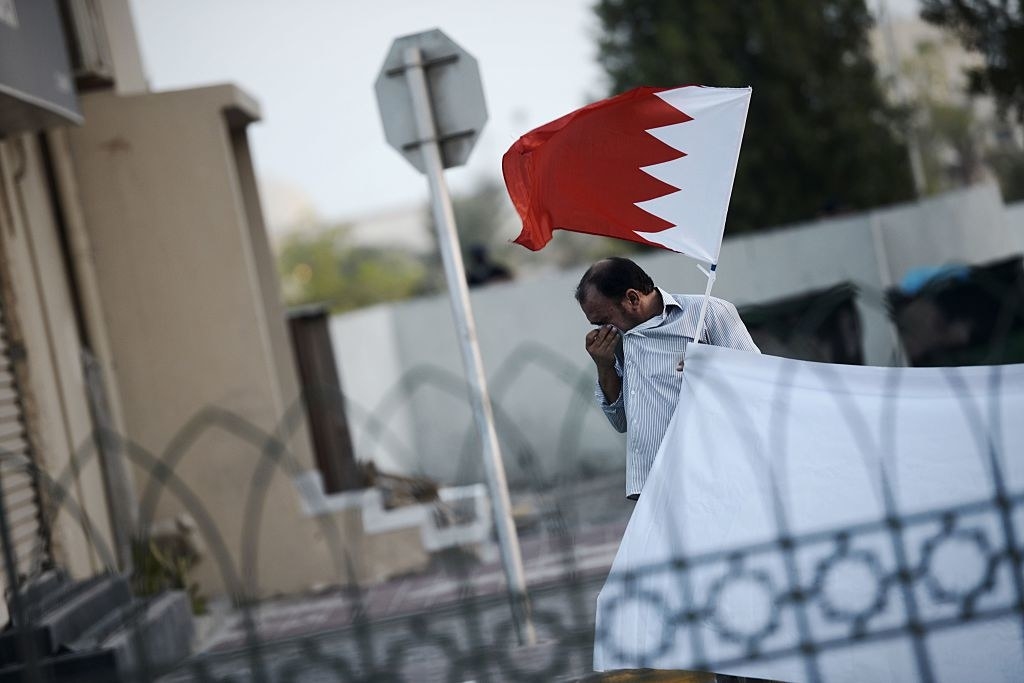
Just days before May's visit to the Gulf, a Bahraini court upheld the death sentences of three men who were tortured into "confessions", according to human rights groups.
Maya Foa, a director at Reprieve, said in a statement: “It’s shocking that, as Theresa May defends Britain’s engagement with the Gulf, Bahrain condemns to death three men who were brutally tortured into bogus confessions. Not only is this a grave violation of Bahraini and international law – it also flies in the face of the prime minister’s talk of ‘reform'. When she meets Bahrain’s leaders tomorrow, Theresa May must demand an urgent review of these cases, and call clearly for an end to police torture.”
A crackdown on government critics, including Shiite clerics
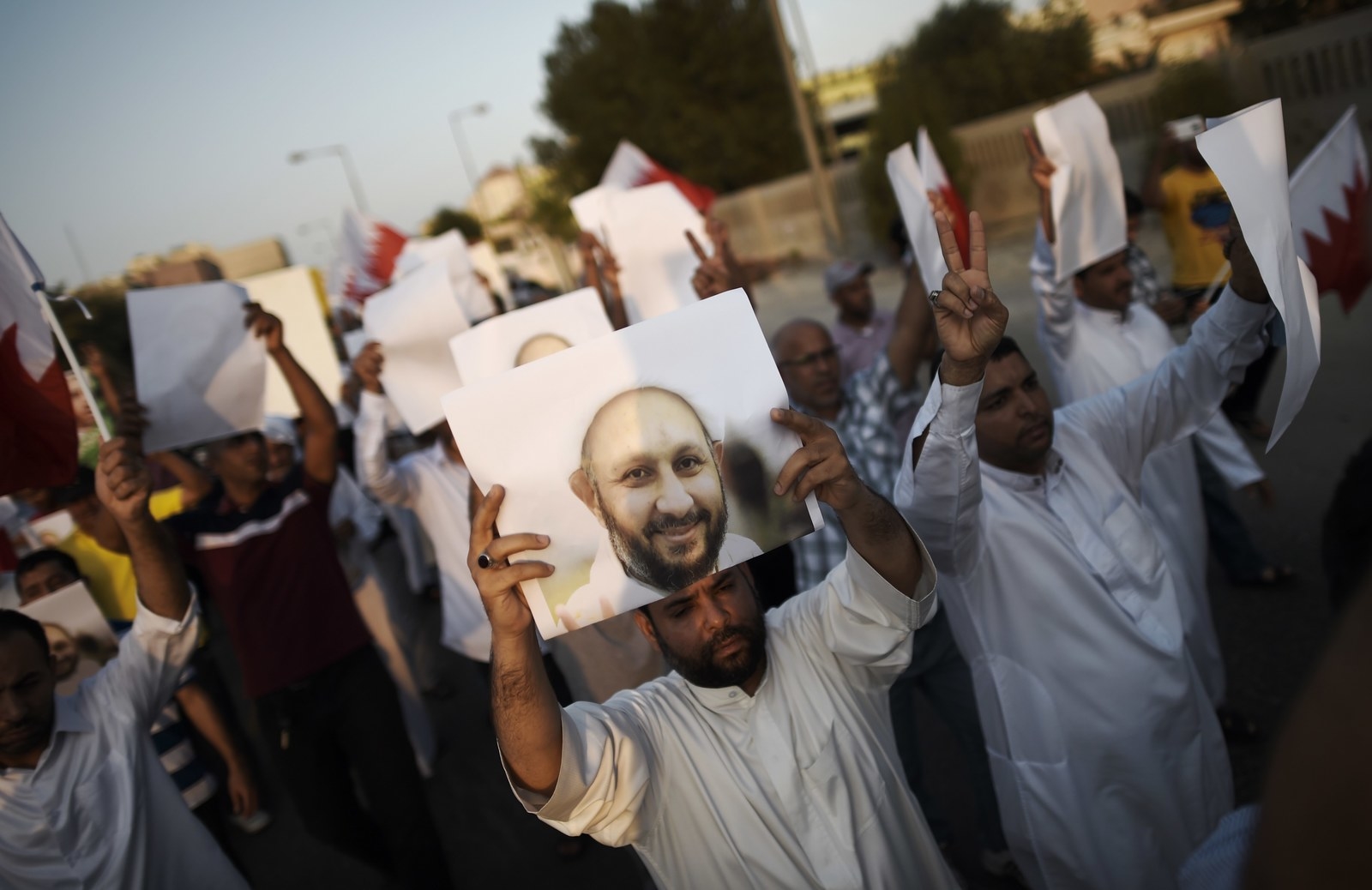
This summer Bahrain revoked the citizenship of Ayatollah Sheikh Isa Qassim, regarded as the spiritual leader of Bahrain’s Shiite population, who make up the majority of the country. The sheikh has been a vocal opponent of the government of Bahrain, and was a key opposition figure during the 2011 protests.
Hugh Ali, executive director at the Justice Human Rights Organization, said at the time: “Religion, politics and grass roots opposition are all under attack in the Kingdom of Bahrain. Following the arrest of Nabeel Rajab the suspension of the Al Wefaq opposition party and the disenfranchisement of Sheikh Isa Qassim, the Government of Bahrain has effectively silenced the voices of dissent in the country."
Bahraini authorities have stripped over 300 people of their citizenship, many of whom are human rights defenders, political activists, journalists, academics, and religious scholars, according to BIRD – the vast majority of those being Shiite.
Criticisms that Britain received Royal Navy base "gifted" by Bahrain
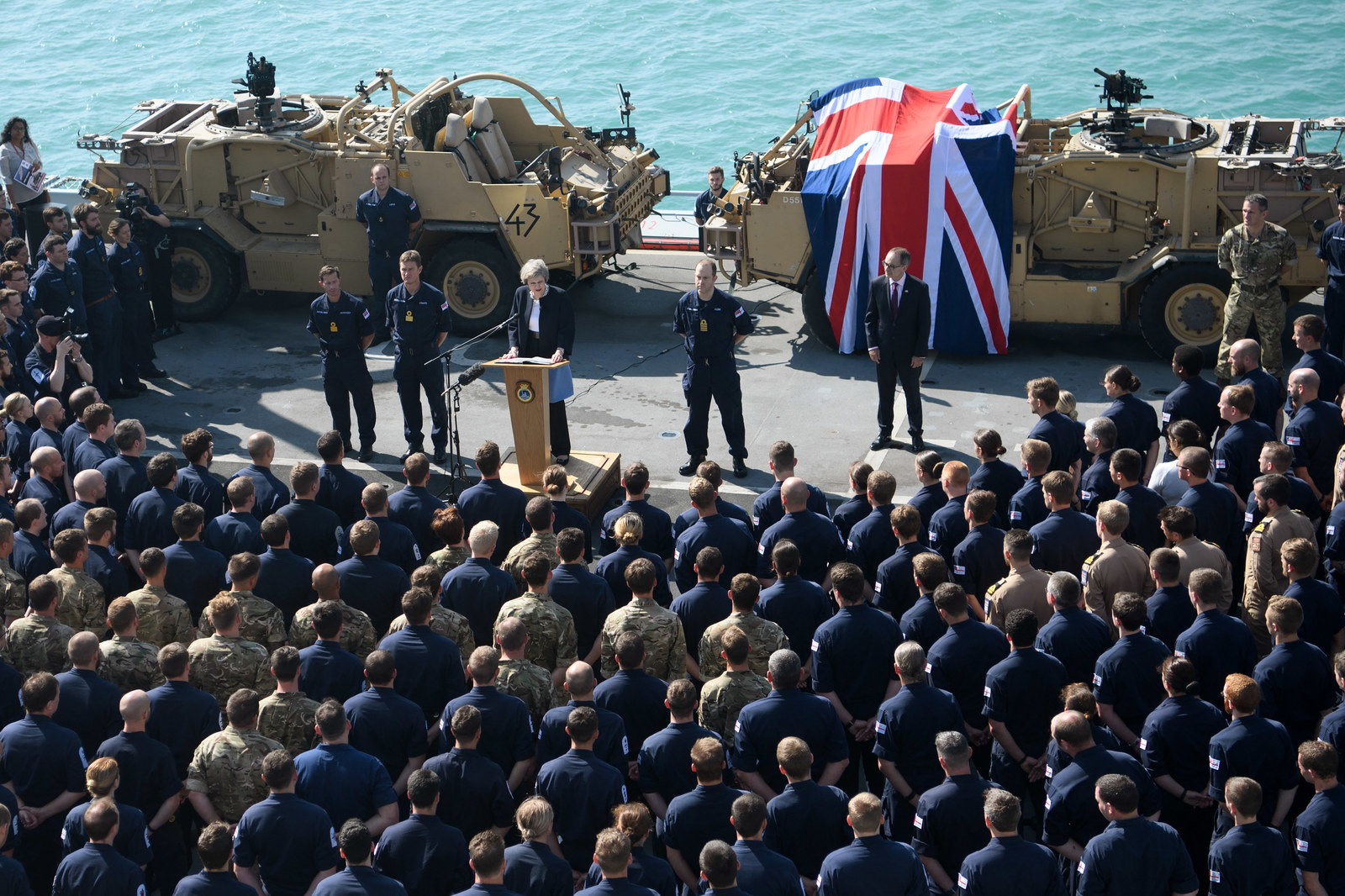
With May addressing the armed forces at the Royal Navy base under construction in Bahrain today, campaigners have criticised the fact the facility was gifted by the king of Bahrain.
Sayed Ahmed Alwadaei, director of advocacy at BIRD, said: "The fall in oil prices has seen Bahrain hit the bottom of the economic barrel, and yet the unaccountable and authoritarian king rewards the British government by building them an expensive base, constructed by the BDF [Bahrain Defence Force], the same army which killed protesters in 2011."
The base was announced in December 2014 and is expected to finish construction and be fully operational in November 2017, according to a recent freedom of information release by the MoD, which told BIRD it forecasts spending £6.4 million on the project.
But according to the Daily Mail, the total figure is upwards of £30 million – although its source is unstated. If true, this new figure means the base has cost over double its originally announced total figure of £15 million.
Campaigners said the deal also harked back to colonial times. Commander Neil Benstead, 42, the project manager for the facility, told the press last month: "The welfare building is part of the gift from the king of Bahrain to the UK to celebrate 200 years of relations between the UK and Bahrain.
"Jufair was the name of the last Royal Navy base that was here that closed in 1971 and the king remembers the facility from when he was younger."
The UK left Bahrain militarily in 1971 following Bahrain's independence from the British Empire. Bahrain had been part of the empire for some 150 years.
